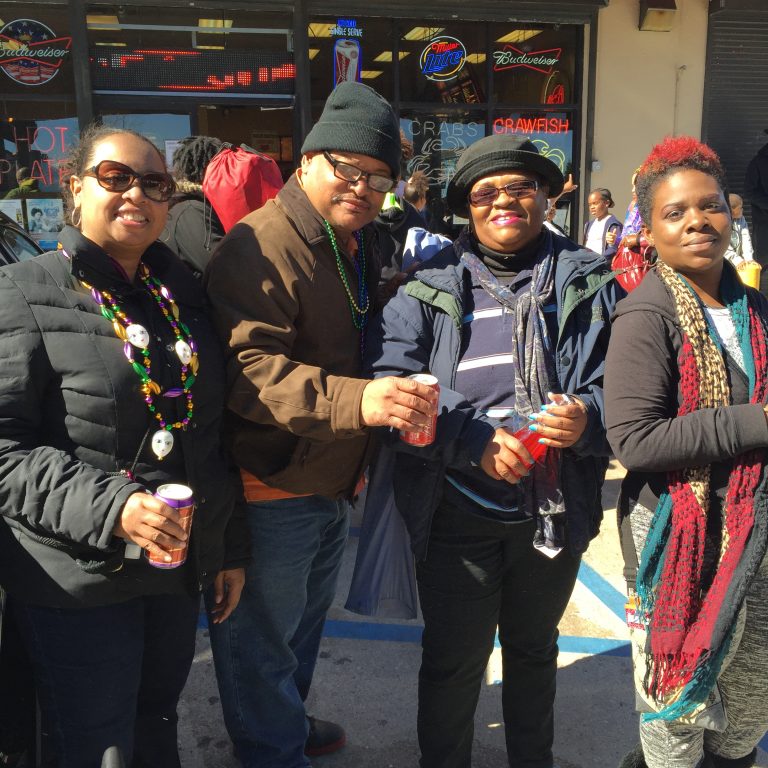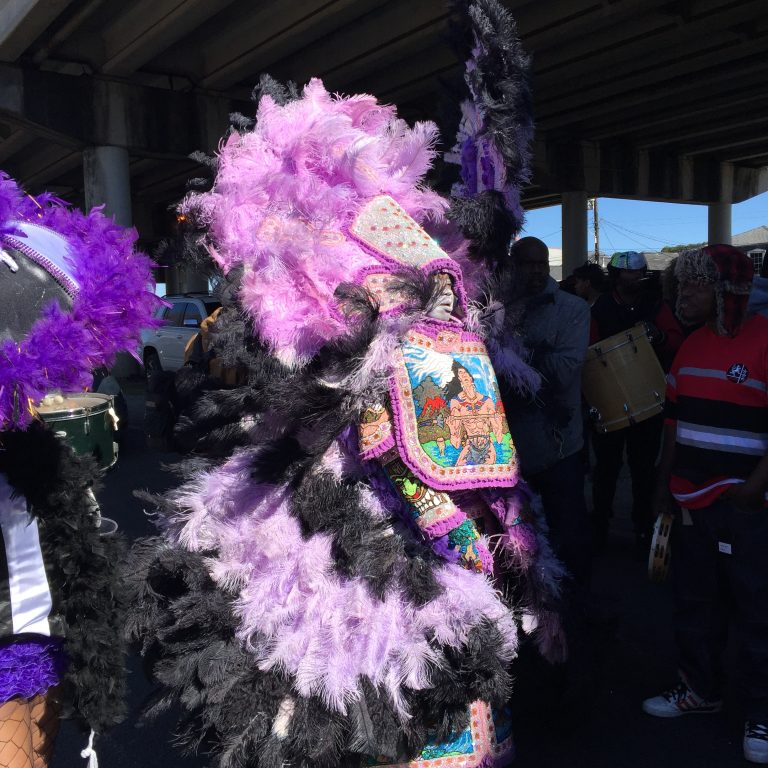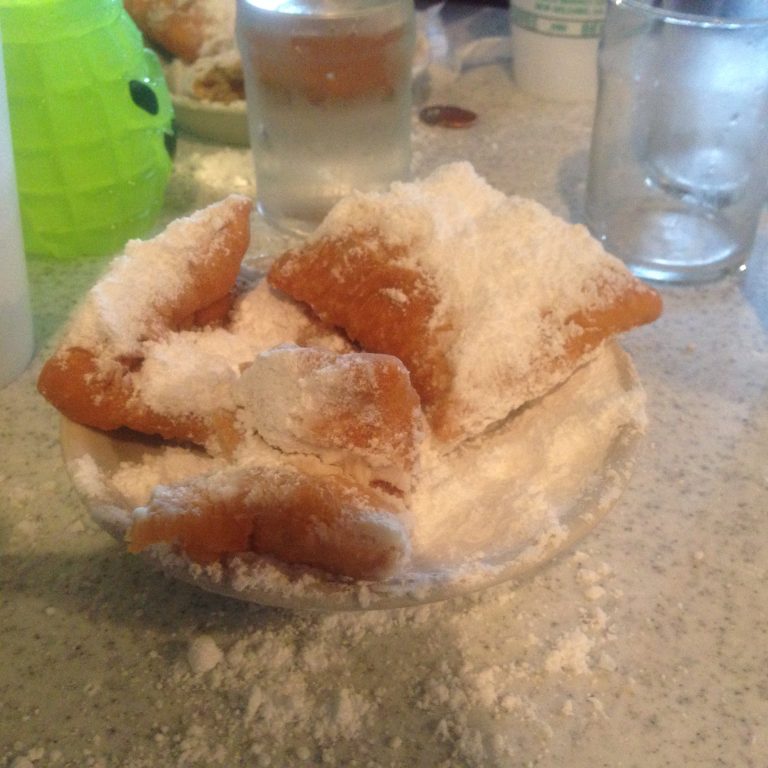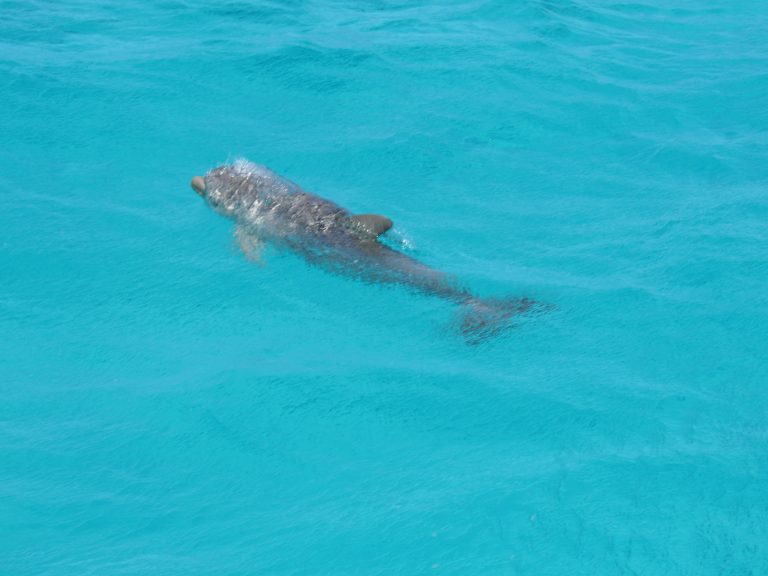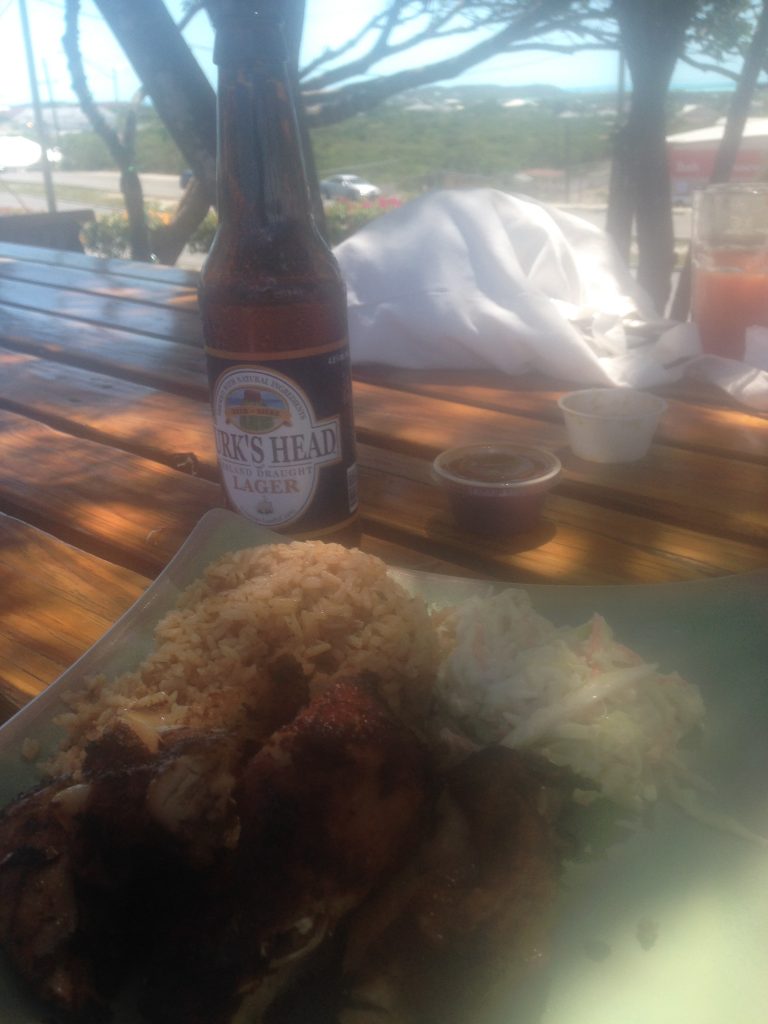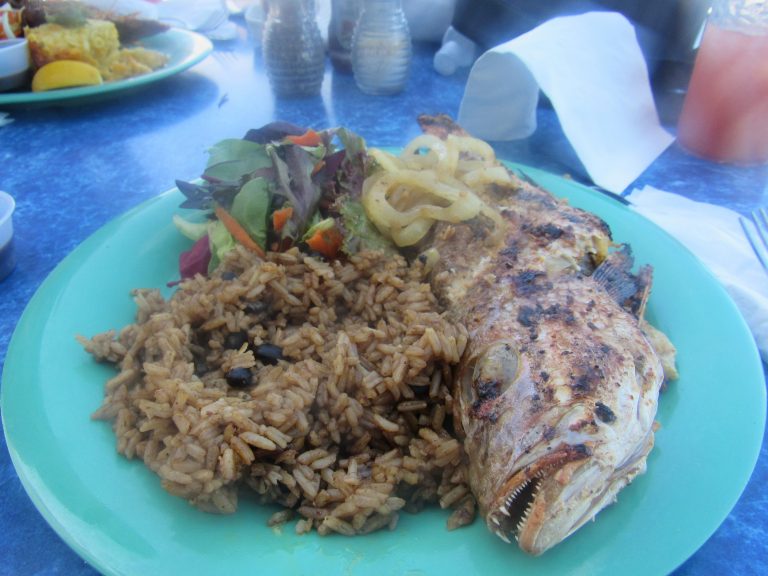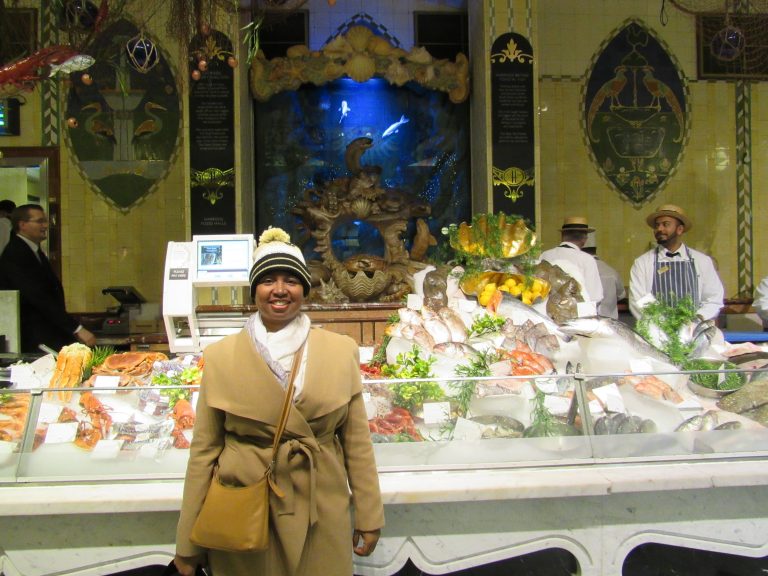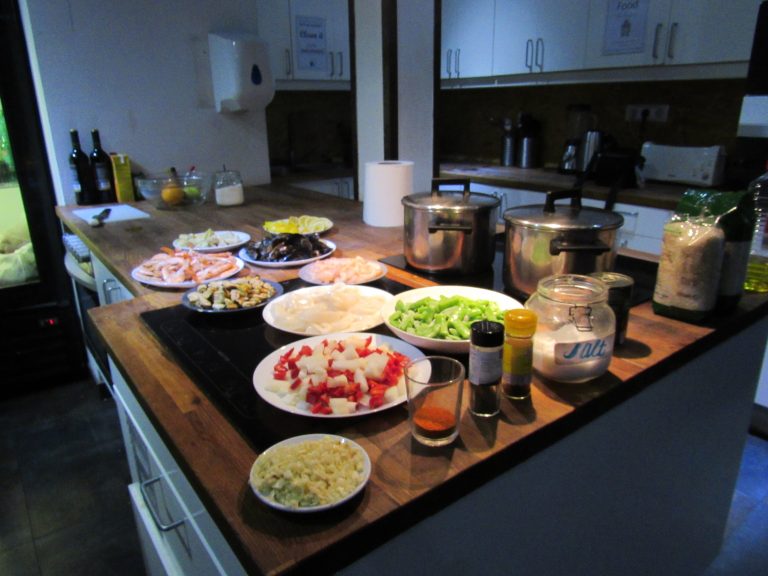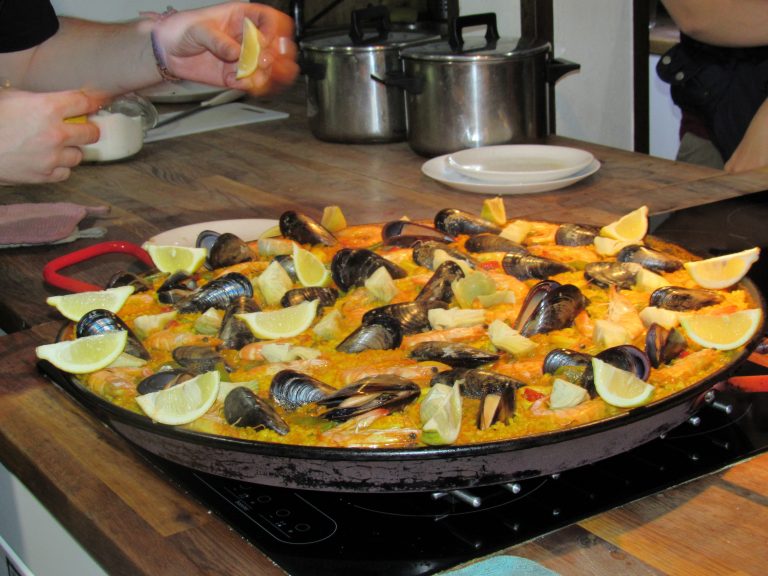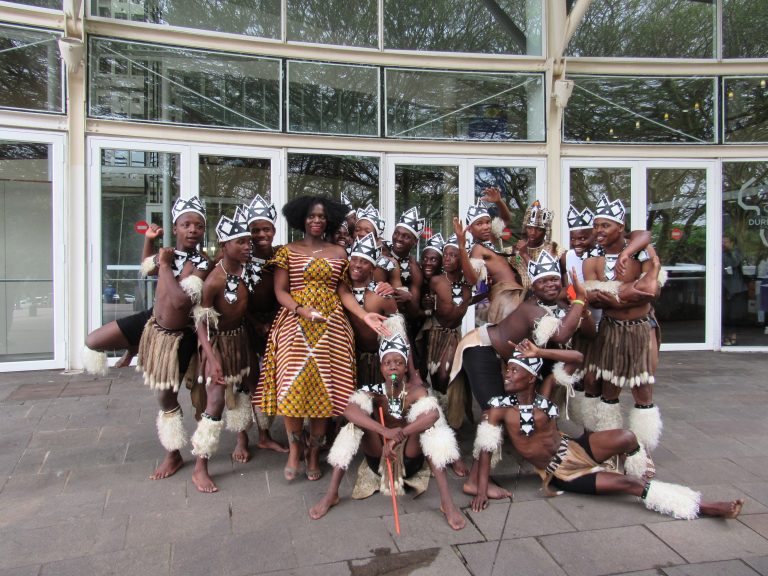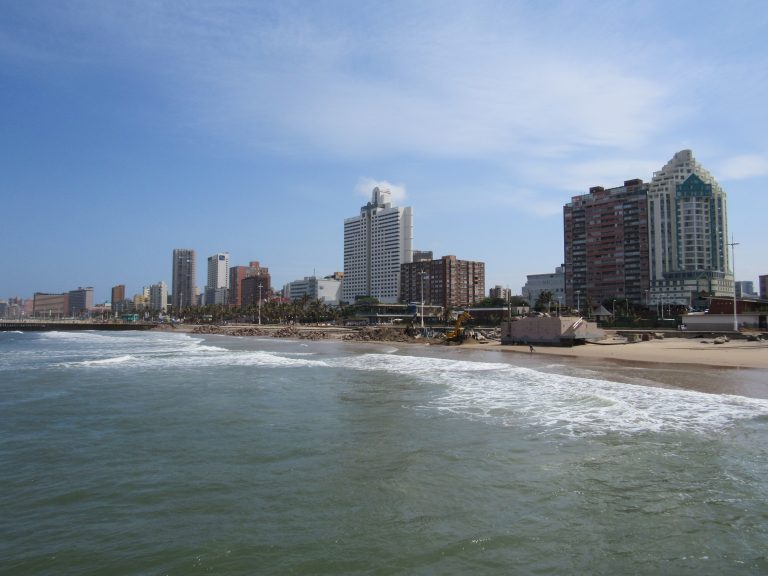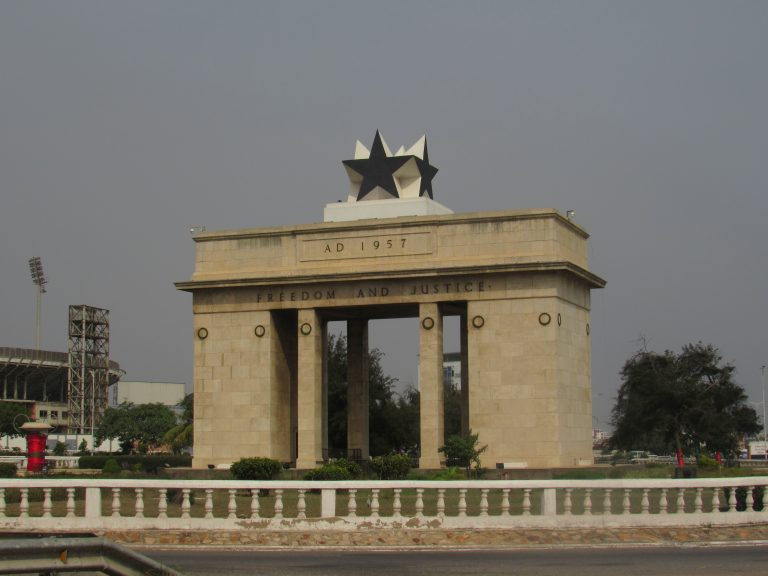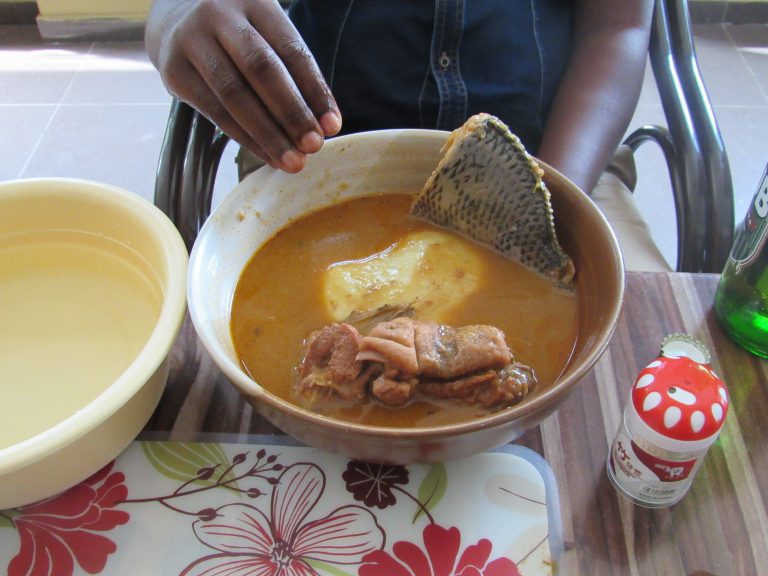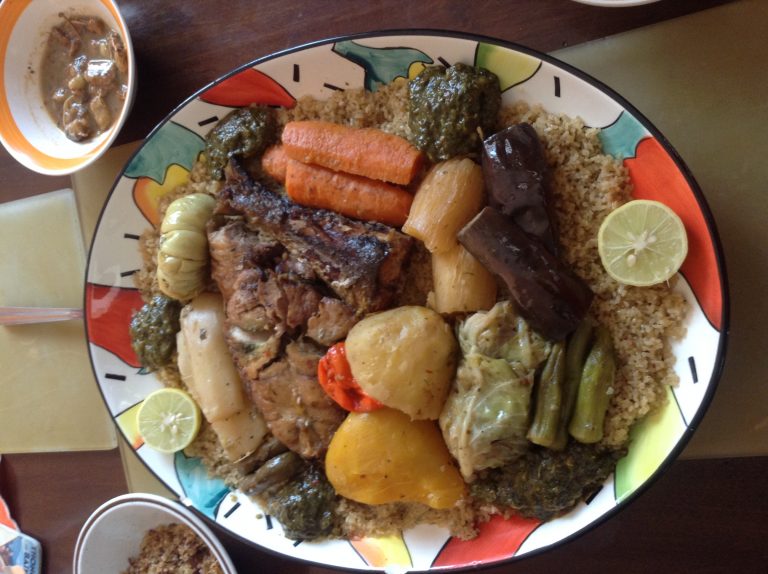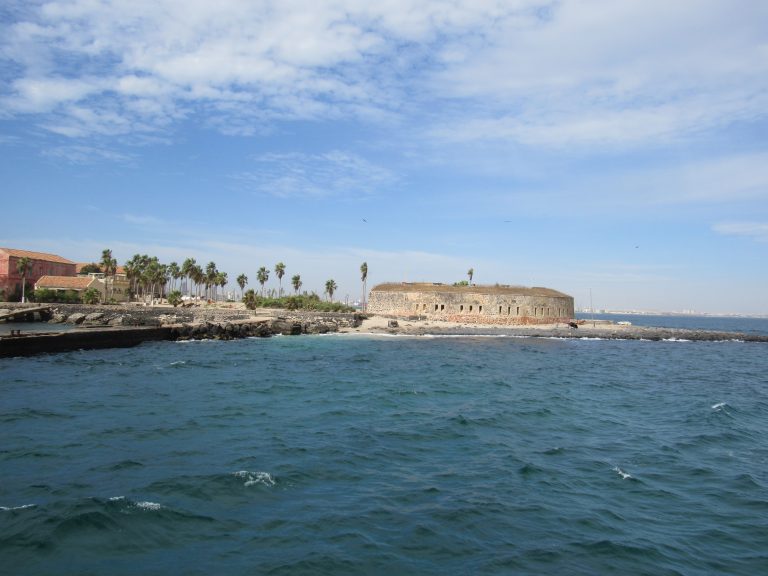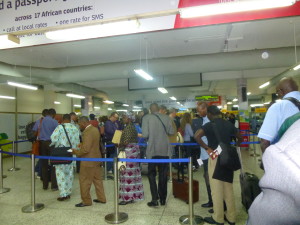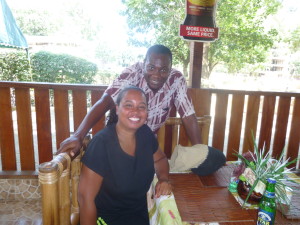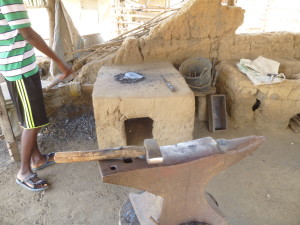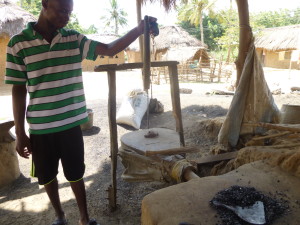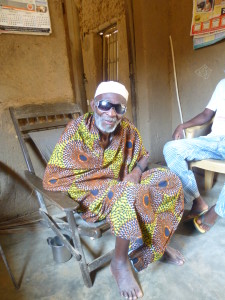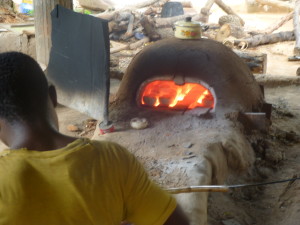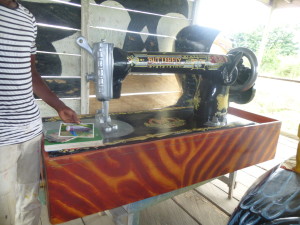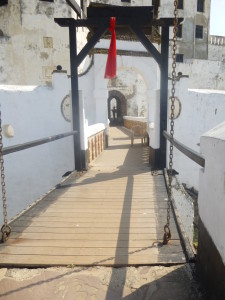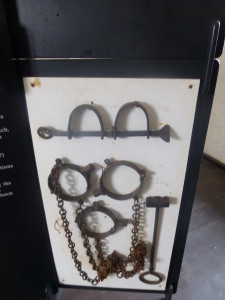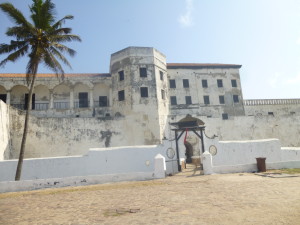The post Birthday Reflections: Good Food and Good Times first appeared on The Travel Sista.
]]>I started the year off at Mardi Gras in New Orleans, spending time with family and friends and adding more beads to my already large collection. Every time I go to New Orleans, I always over indulge and this time was no exception. Between the po-boys, beignets and red beans and rice, I got my fill of N’awlins cuisine and gained a pound or two in the process.
Next up was Turks and Caicos islands. I spent five days in Providenciales, where I laid eyes on some of the beautiful turquoise water I’ve ever seen. I was lucky enough to encounter JoJo, Grace Bay’s famous dolphin who’s known for approaching humans. He swam up to our boat as if to say hi, then playfully swam away. While there, I also ate some of my favorite Caribbean food – jerk chicken with rice and peas and grilled snapper.
I ended the year on a whirlwind, with jaunts to London, Barcelona, South Africa, Morocco, Senegal and Ghana. I wasn’t a fan of the food in the UK, but Barcelona made up for it. I had an amazing seafood paella which I watched the chef prepare from beginning to end.
But my favorite culinary delights came from Senegal. On my first day, my hosts treated me to Senegal’s national dish, Thieboudienne (aka thebu jenn), a flavorful dish with fish, rice and vegetables. We washed it down with bissap, a drink made from dried hibiscus leaves. During my time in Senegal, I had other delicious meals like Thebu Yapp (a lamb and rice dish) and Yassa Poulet (chicken with onion sauce). Desserts were also heavenly. As a former French colony, one of the vestiges is great boulangeries and patisseries with croissants and pastries that rival those in Paris. Let’s just say that I had more than my fair share.
Looking back on the past year, I’m amazed at the remarkable experiences I’ve had. I met a lot of new people, made a lot of new friends, and today I received birthday messages from all over the globe. It’s a testament to the power of travel and the gifts you receive if you step outside of your comfort zone. Although these gifts aren’t tangible, I cherish them all the same. I look forward to another year of traveling to far off places, eating new foods, and meeting new friends. My big goal this year is to finally tackle Machu Picchu. Wish me luck.
What do you enjoy most about traveling abroad? Share your comments below.
Share This
The post Birthday Reflections: Good Food and Good Times first appeared on The Travel Sista.
]]>The post Exploring Ghana first appeared on The Travel Sista.
]]>Customs line at Kotoka Int’l Airport (Accra)
I arrived in Accra around 7:30 pm on a Friday night. Two other flights had just arrived before mine, so the line for customs (non-Ghanaians) was extremely long. After about an hour and a half, I finally made it through customs, grabbed my luggage and met my driver Wisdom outside. We packed up and headed to the Sunbird Lodge, Jolinaiko’s bed and breakfast located about 20 minutes away in the suburb of Amrahia; I stayed there overnight before starting my tour. Wisdom was my personal tour guide for the week and I highly recommend him.
Wisdom and I
I woke up early the next morning to a bright, sunny day. After a homemade breakfast of scrambled eggs, toast and fresh fruit, Wisdom and I headed out for the two-hour drive to the Volta region in eastern Ghana. Along the way, we passed through several small towns where I got a glimpse into daily Ghanaian life. Locals sold clothing, food and other items from roadside stands. Others stood in the road selling a variety of fresh fruit, fried plantain chips (which were delish) and tea bread. I was astonished by the plethora of churches and church-related billboards; clearly, Western Christianity has taken a stronghold in Ghana. I was even more floored by the numerous cell phone ads and stores; it was an odd sight considering the obvious poverty. Wisdom and I had some interesting talks about Ghanaian history, life and culture and his Ewe heritage. Wisdom was very knowledgeable and personable.
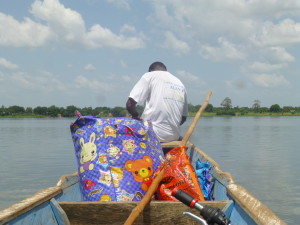 River ferry canoe to Atsiekpoe Village
River ferry canoe to Atsiekpoe Village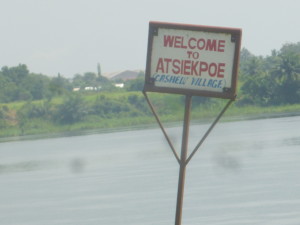
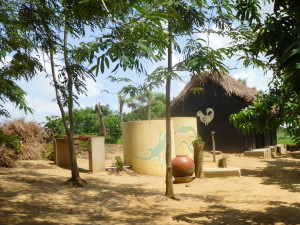
Our first stop was the village of Atsiekpoe (aka Cashew Village). It lies on the Volta river bank and can only be reached by crossing the river on a ferry canoe. After a quick five minute ride, I arrived at the village where several women were washing clothes in the river. I was soon met by my two young tour guides who walked me around the village. They showed me various buildings, houses, and schools, most of which were made of termite clay and covered by grass thatch roofs. I also saw their small herd of goats, the gardens where they grow fruits and vegetables, and how they make handmade tools and charcoal. There was limited electricity and no running water. About halfway through the tour, we stopped at the home of Adawu, the village elder and historian. He welcomed me and invited me into the small hut, where he shared a thorough history of the village. We also talked about his life and work history, as well as mine in the USA. I was amazed by his memory and cognitive abilities, especially after I learned he was 95 years old. We talked for nearly 30 minutes and I felt honored for the experience. Before I left, I asked to take his photo, which he obliged only after putting on his sunglasses (I learned he was blind during our talk, but it wasn’t otherwise obvious). The tour ended at the community museum/tourist center, which had historical information and handmade art, tools, and a 100 year old chief’s stool. I made a donation to the community and said thanks to my tour guides who walked me back to the river. We bid farewell and I took the ferry canoe back across.
Adawu
In late afternoon, Wisdom and I stopped for lunch at a rest stop where I had the best grilled tilapia I’ve ever had in my life. It was accompanied by Jollof rice, a spicy tomato-based West African rice dish, which was equally delicious. After lunch, we headed to Biakpa, in the eastern highlands of the Volta region. The area is mountainous and our drive included some long narrow, winding roads. But the sun was going down as we arrived and I was treated to beautiful panoramic views of the hills and lush vegetation. The next morning, we went to the village of Amedzofe, which is Ghana’s highest settlement at 2500 feet. I took a brief walking tour with Godwin, the resident Rastafarian and budding author. Over the next few days, I visited several more villages, including Tafi Atome (where I visited their monkey sanctuary and fed bananas to the Mona monkeys), Tafi Abuipe (a kente weaving village), and Kpando (a women’s pottery village). Most of the villages had small homes made of termite clay, and lacked electricity or indoor plumbing. There was a big sense of community, however, as most residents seemed to be related or know each other.
 Feeding the monkeys at Tafi Atome village
Feeding the monkeys at Tafi Atome village 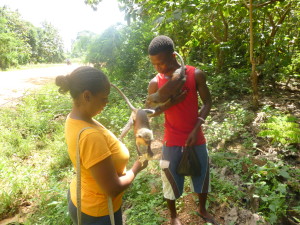
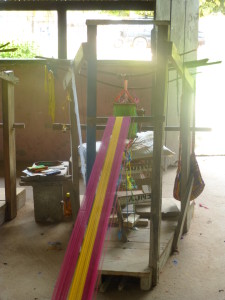 Kente weaver at Tafi Abuipe village
Kente weaver at Tafi Abuipe village
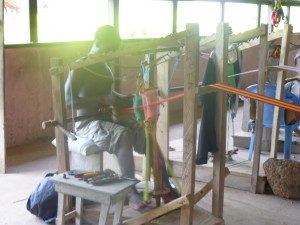
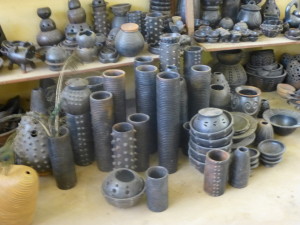 Kpando Women’s Pottery village
Kpando Women’s Pottery village
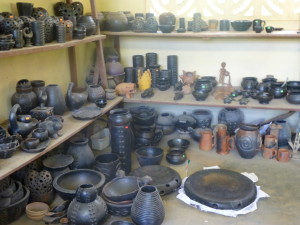 On the day before I left, I went to the Cape Coast to see the infamous slave castles. I took a tour of the Elmina Castle in Elmina; it was an emotionally overwhelming experience and I was glad to get to my hotel, Biriwa Beach, for some rest. For lunch, I had another Ghanaian dish, groundnut soup with chicken and rice balls. It was delicious and filling. I spent the remainder of the day relaxing and meditating with beautiful ocean views and lush greenery in the background. The next morning, we headed back to Accra. On the way we stopped to visit custom coffin makers and a glass bead factory, where they made beautiful hand-made jewelry. I purchased several pieces for myself and as souvenirs. In Accra, I visited tourist highlights in the city, including the National Museum, the Kwame Nkrumah museum and mausoleum, Ghana Judicial Service and government complex, and the W.E.B. DuBois museum. We also stopped at a sales complex, where I purchased a large mud cloth which decoratively hangs on my hallway wall. It’s a beautiful reminder of my time in Ghana.
On the day before I left, I went to the Cape Coast to see the infamous slave castles. I took a tour of the Elmina Castle in Elmina; it was an emotionally overwhelming experience and I was glad to get to my hotel, Biriwa Beach, for some rest. For lunch, I had another Ghanaian dish, groundnut soup with chicken and rice balls. It was delicious and filling. I spent the remainder of the day relaxing and meditating with beautiful ocean views and lush greenery in the background. The next morning, we headed back to Accra. On the way we stopped to visit custom coffin makers and a glass bead factory, where they made beautiful hand-made jewelry. I purchased several pieces for myself and as souvenirs. In Accra, I visited tourist highlights in the city, including the National Museum, the Kwame Nkrumah museum and mausoleum, Ghana Judicial Service and government complex, and the W.E.B. DuBois museum. We also stopped at a sales complex, where I purchased a large mud cloth which decoratively hangs on my hallway wall. It’s a beautiful reminder of my time in Ghana.
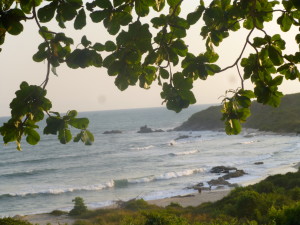 Views of the Atlantic coast outside my room
Views of the Atlantic coast outside my room
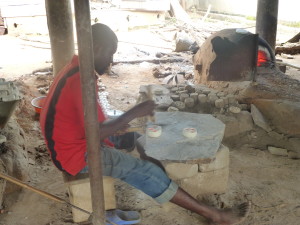 Glass bead jewelry
Glass bead jewelry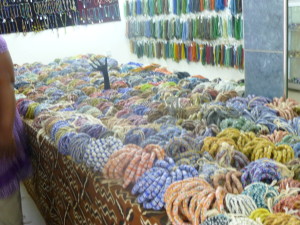
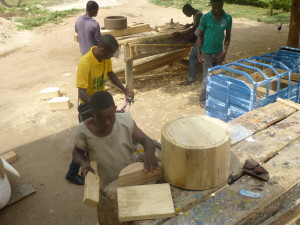 Making custom coffins
Making custom coffins
I left Ghana glad that I had visited and hopeful that it would one day see the economic success it deserves. There are so many talented, hardworking people that would thrive with just a fraction of the opportunity we have in the USA. Hopefully, more economic development will come in my lifetime.
Share This
The post Exploring Ghana first appeared on The Travel Sista.
]]>The post Ghana’s Elmina Castle first appeared on The Travel Sista.
]]>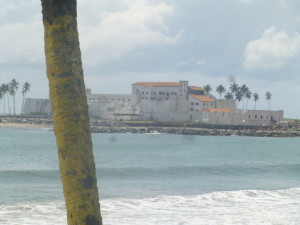 View from the Atlantic coastline
View from the Atlantic coastline
As we drove up the Atlantic coast, the large, imposing white castle came into view. The sight of it brought on a feeling of unease. When we finally arrived, I walked around and stood outside for a minute to take it all in. As I was in my moment, several locals walked up to me trying to sell various goods. By the third one, I was quite annoyed and yelled “NO, leave me alone.” I’m not normally that rude, but I was upset by the disturbance of my moment of reflection. It seemed to do the trick and I went back to my moment. Finally, I took a deep breath and walked across the drawbridge to enter the castle. Once inside, I was told there was an entrance fee of $10 USD for foreign adult visitors. I didn’t like it, but I sucked it up and paid the fee. When I learned there was an additional fee of $10 USD to take inside pictures or videos, I declined.
My visit began at the small museum which detailed the history of the castle and the various colonial powers who controlled it for nearly 500 years. Surprisingly, there wasn’t much information about the capture and sale of African slaves by African traders. Likewise, there was little information about the trans-Atlantic voyage, the people of the African diaspora, and the aftermath of the trans-Atlantic slave trade. These stories are so inextricably connected that it was unfortunate the full narrative was not told.
Next, I went on a guided tour conducted by a local Elmina resident. The tour guide was knowledgeable enough, and as we walked through the fortress he described the inhumane conditions the slaves endured before they made the voyage to the Americas. We started at the women’s dungeon, which at full capacity held up to 400 women for as long as four months while they waited for a ship to arrive. They were fed once a day and sometimes not at all. They were not allowed to bathe and were forced to live in their own urine, blood, and excrement (a faint smell still remains present). Death and disease were common. As I stood inside the room with no windows and minimal ventilation, I visualized all of those women in that hot, cramped, smelly space with barely enough room to sit, let alone lie down. I tried to imagine what they felt and what they were thinking. My emotions finally overtook me and the tears began to fall.
Just outside the women’s dungeon was a courtyard with a staircase leading to an overhead balcony; this was part of the governor’s chambers. The tour guide explained that the women were paraded out of the dungeon while he looked over the balcony and chose one as his concubine. The chosen woman was cleaned up and fed, then led up the staircase to the governor’s chambers for him to have his way with her. The women were regularly raped by the governor, soldiers and other officials. Those who became pregnant were “lucky”; they were freed and housed in town, and their mixed children were educated. Those who resisted were severely punished; they were chained to a heavy ball in the courtyard and forced to stand all day in the sun with no food or water.
From there we went to the men’s dungeons, which held up to 600 men and were similarly dark, damp and disgusting. The men’s dungeons were closest to the infamous “Door of No Return”, where the slaves were taken to waiting ships. The entrance to that tunnel was so short we had to duck to avoid hitting our heads. I surmised the size was purposeful because this was where the slaves took their last steps on African soil, and where they were most likely to resist. Several visitors had left flower memorials there in their honor.
Next, we went to the upper levels, which contained the kitchen, soldier’s housing, suites for visiting officials, and the governor’s wing. In stark contrast to the dungeons below, the governor’s quarters were spacious and airy with beautiful ocean views. Surprisingly, there was also a church directly above the room of no return. The irony wasn’t lost that these captors worshiped above the space where they held other humans in captivity and broke so many of God’s commandments.
The tour ended at the “condemned cell”, which had a skull and cross bones above the door. This was where male slaves who rebelled or resisted were imprisoned in a windowless, ventless chamber and left to die with no food, water or air. You can still see scratch marks on the wall, signs of their desperate struggle to survive. Outside the cell was a plaque which read: “In Everlasting Memory of the anguish of our ancestors. May those who died rest in peace. May those who return find their roots. May humanity never again perpetrate such injustice against humanity. We, the living, vow to uphold this.” I can only hope that this history never repeats itself.
My visit to Elmina Castle was an incredibly emotional event (which I relived as I wrote this post). I had learned about the horrors of the trans-Atlantic voyage and slavery in America, but never realized how horrendous the experience was before the slaves left the African shore. Reflecting back, it was humbling to realize that I’m descended from some amazingly strong people, and if they could survive through that horrific experience, I can make it through any of my comparatively small troubles. Moreover, it was liberating to be able to go back there to pay homage to the ancestors and show that their captors did not win. It was a life changing experience I’ll never forget.
Share This
The post Ghana’s Elmina Castle first appeared on The Travel Sista.
]]>